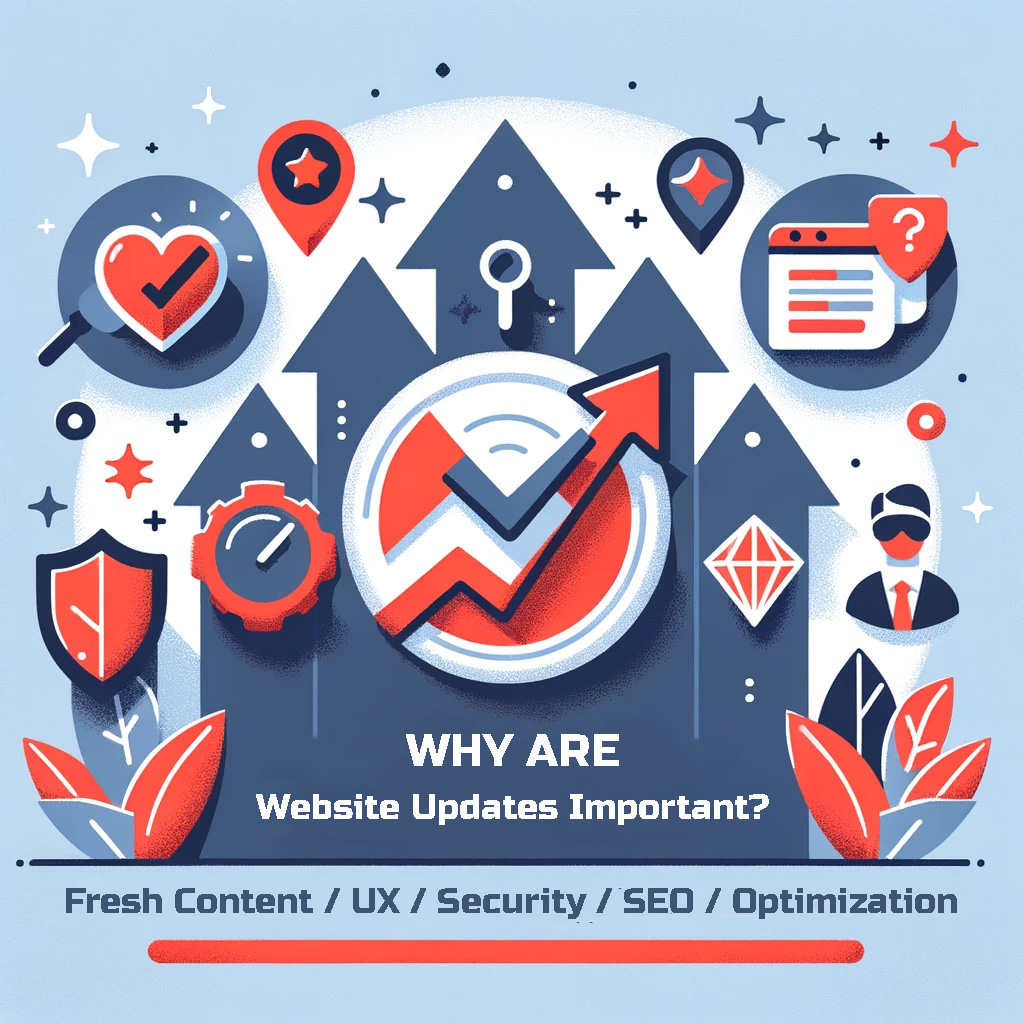Understanding Website Updates
Website updates refer to the process of making changes or improvements to your website’s content, design, functionality, and security. These updates can be as simple as adding new blog posts or as complex as implementing software patches and security enhancements.

Why Are Website Updates Important?

- Fresh Content: One of the most crucial aspects of website updates is keeping your content fresh. Regularly publishing new content, such as blog posts, articles, and product updates, keeps your website relevant and engaging for visitors.
- Improved User Experience: Updating your website’s design and functionality ensures that it remains user-friendly. A modern and intuitive design enhances the overall experience for your visitors.
- Security: Cybersecurity threats are ever-present. Regular updates to your website’s software, plugins, and themes help protect it from vulnerabilities that hackers might exploit.
- Search Engine Visibility: Search engines like Google prefer websites that are regularly updated with fresh, relevant content. Consistent updates can improve your website’s search engine ranking, making it more visible to potential visitors.
- Mobile Optimization: With the increasing use of mobile devices, ensuring your website is mobile-responsive through updates is crucial. Mobile-friendly websites perform better in search results and provide a better user experience.
- Competitive Edge: Websites that stay current and up-to-date have a competitive advantage. Users are more likely to trust and engage with a site that looks and feels modern.
Types of Website Updates
Website updates can encompass various aspects:

- Content Updates: Adding new blog posts, articles, product descriptions, or multimedia content keeps your website fresh and informative.
- Design Updates: Over time, design trends change. Updating your website’s design ensures it remains visually appealing and user-friendly.
- Functionality Updates: Adding new features or improving existing ones can enhance user experience and functionality.
- Security Updates: Regularly installing security patches and updates helps protect your website from potential vulnerabilities and cyber threats.
- SEO Updates: SEO best practices evolve. Updating your website’s SEO strategies and keyword optimization can boost search engine rankings.
How to Implement Website Updates
Now that we’ve established the importance of website updates, here’s how you can effectively implement them:

- Content Calendar: Create a content calendar to plan and schedule regular content updates, including blog posts, news articles, or product releases.
- Regular Audits: Conduct regular website audits to identify areas that need improvement, whether it’s design, functionality, or security.
- Backup Your Site: Before making significant updates, always backup your website to prevent data loss in case of unexpected issues.
- Update Software: Keep your content management system (CMS), plugins, and themes up to date. Most CMS platforms offer automatic updates for security patches.
- Test Changes: Before implementing major updates, test them in a staging environment to ensure they work correctly and don’t disrupt your live website.
- Monitor Performance: After updates, monitor your website’s performance, including loading times, user engagement, and SEO rankings.
- Stay Informed: Keep up with industry trends, security updates, and SEO best practices to ensure your website remains competitive.
In Conclusion

Website updates are not just routine maintenance; they are vital for your website’s success in the digital world. By regularly refreshing your content, improving user experience, enhancing security, and staying competitive, you create a dynamic online presence that engages visitors and attracts new ones.
Remember, your website is often the first point of contact with potential customers or readers. Keeping it updated and relevant ensures that you make a positive impression and maintain a strong online presence. So, embrace website updates as an essential part of your online strategy, and watch your website thrive in the ever-changing digital landscape.





